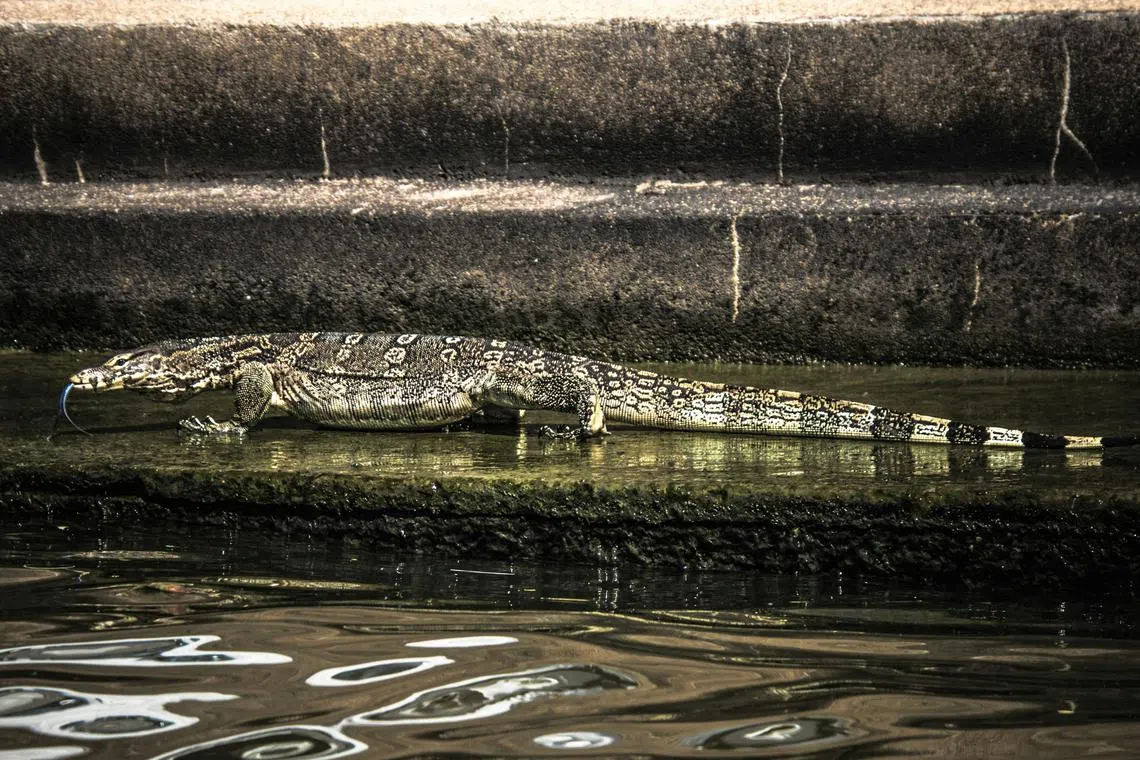Thailand’s monitor lizards tipped as next big ‘economic animal’ in luxury leather
Sign up now: Get ST's newsletters delivered to your inbox

The Thai government has moved to allow the commercial breeding of the reptiles, which are native to the region.
PHOTO ILLUSTRATION: UNSPLASH
Follow topic:
BANGKOK - Thailand’s Asian water monitors are being championed as a new “economic animal”, poised to enter the lucrative 7.6 billion baht (S$302 million) leather market.
The move follows a government decision that allows for the commercial breeding of the reptiles, which are native to the region.
The Kasikorn Research Centre reports that the government’s Wildlife Preservation and Protection Committee has approved a scheme for licensed individuals to breed the monitors, with breeding pairs costing just 500 baht each from the Department of National Parks.
This initiative aims to unlock the commercial potential of the animals in three key areas: leather, medicinal products, and meat.
The monitor lizard’s hide is expected to command a higher price than traditional cow or buffalo leather, with a single square metre fetching between 4,200 and 14,000 baht.
This could significantly boost Thailand’s processed leather export market, which was valued at around 7.5 billion baht in 2024.
A major selling point for the new industry is the monitor lizard’s environmental credentials. Unlike cattle and buffalo, these reptiles do not produce methane gas during digestion.
This difference could reduce greenhouse gas emissions by up to 3.4 million tonnes per animal per year, potentially giving monitor lizard leather a significantly lower carbon footprint than other animal hides.
The report also highlights the varied international regulations surrounding the trade of monitor lizards and their products:
Thailand: Breeding is permitted under licence.
Malaysia: Breeding and production are allowed.
Indonesia: Quotas for capture and export are in place under Cites regulations.
United States/European Union: Imports are allowed with a Cites permit.
China/Australia: Trade is prohibited.

